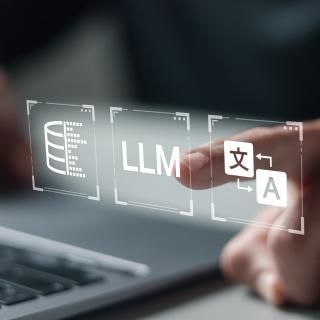Germany: Recommendation for action on the use of artificial intelligence in school education processes

In October 2024, the Conference of the Ministers of Education of the Länder (Bildungsministerkonferenz) adopted a “Recommendation for action for the education administration on the use of artificial intelligence in school education processes” (“Handlungsempfehlung für die Bildungsverwaltung zum Umgang mit Künstlicher Intelligenz (KI) in schulischen Bildungsprozessen”). This recommendation aims to enable schools to deal with AI in a constructively critical way and to make the best possible use of the potential of these technologies for learning and teaching.
The recommendation for action covers several key topics:
- Influence of AI on learning and didactics: AI applications should support teachers and create a personalised learning environment that addresses the individual needs of students.
- Changing the examination culture: The Standing Conference calls for an adaptation of examination formats to take into account the skills needed to use AI and to make performance assessment transparent and fair.
- Professionalisation of teachers: Teacher training and professional development should systematically integrate the use of AI in order to be able to adequately assess the opportunities and risks of these technologies.
- Regulation and legal framework: The Standing Conference is committed to clear legal requirements that ensure the protection of students' personal rights while promoting the use of AI applications in the school context.
- Equal opportunities: All learners should be given the opportunity to develop skills in dealing with AI in order to be able to act as responsible citizens in a world characterised by digitalisation.
The recommendation for action is based on important preliminary work by the Länder. This includes the supplementary recommendation of the Standing Conference ‘Teaching and Learning in the Digital World’ (‘Lehren und Lernen in der digitalen Welt‘) (2021) to the strategy ‘Education in the Digital World’ (‘Bildung in der digitalen Welt’) and the impulse paper of the Standing Scientific Commission of the Standing Conference KMK ‘Large Language Models and their Potential in the Education System’ (‘Large Language Models und ihre Potenziale im Bildungssystem‘) (2024).
These documents and the drawing on of further scientific expertise, including at a specialist conference on the topic and through a written consultation process, have created the basis for the current recommendations. In the sense of an orientation framework, they form the common position of the Länder on the use of AI applications in school education processes.
For more information:
- https://www.kmk.org/fileadmin/veroeffentlichungen_beschluesse/2024/2024_10_10-Handlungsempfehlung-KI.pdf
- https://www.kmk.org/fileadmin/Dateien/veroeffentlichungen_beschluesse/2016/2016_12_08-Bildung-in-der-digitalen-Welt.pdf
- https://www.kmk.org/fileadmin/Dateien/veroeffentlichungen_beschluesse/2021/2021_12_09-Lehren-und-Lernen-Digi.pdf
Source: Eurydice Unit Germany (Länder)




